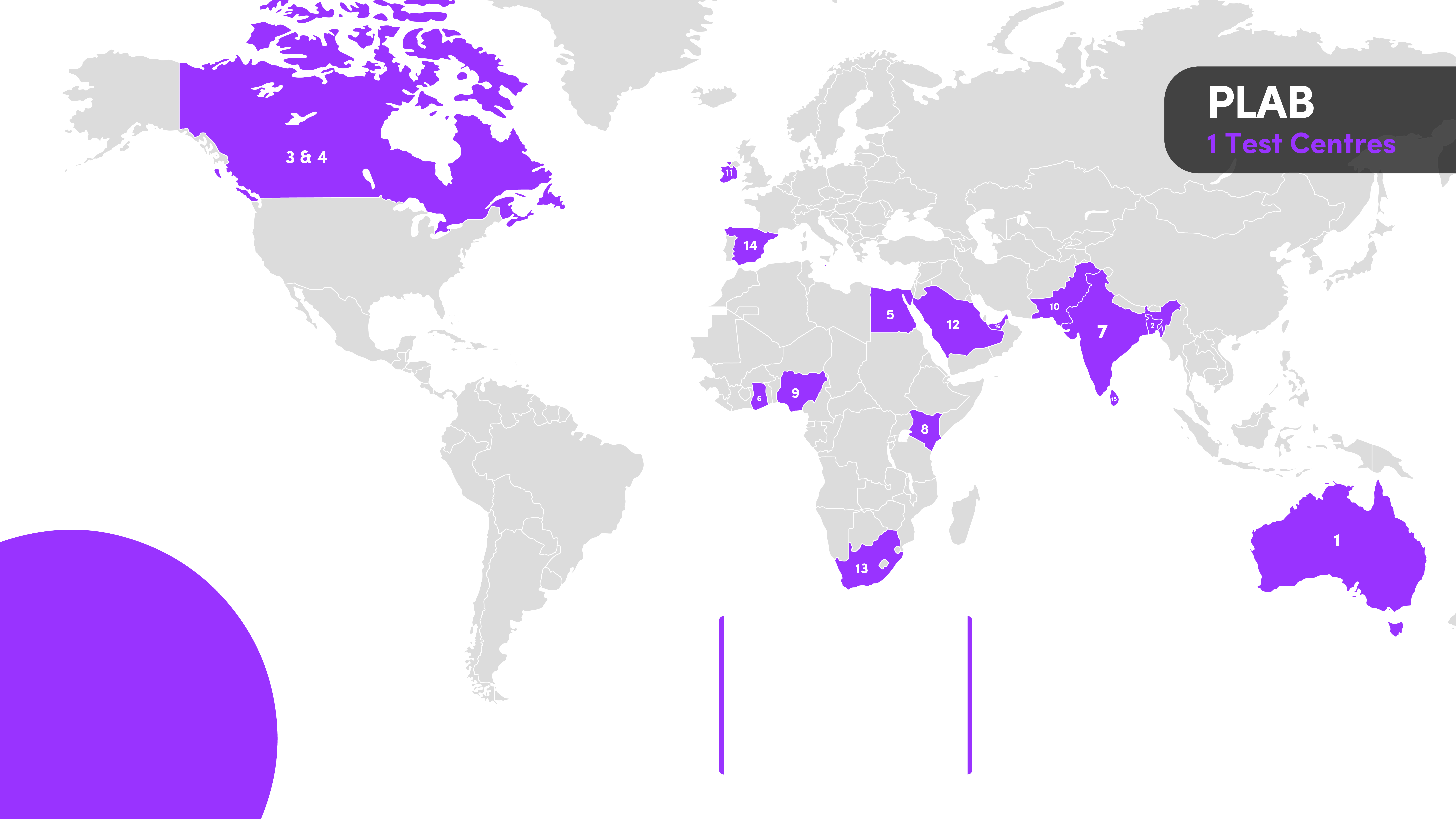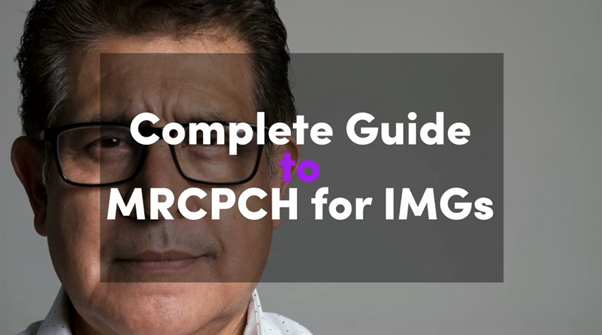Overview of PLAB for IMGs
11 Feb, 20238 Minutes
When you have trained and worked as a doctor, you may have a long-term goal to start working in the UK. After all, the NHS is at the forefront of patient care, and is involved in an array of medical research including on cancer and paediatric care.
But if you didn't receive your original training in the NHS, there are some exams you will need to pass in order to work and practise medicine in the NHS. This is to ensure that your competence is up to the high standard that this institute wants.
So, after a quick Google search, you will have found that a mandatory exam for working in the NHS if you are an international doctor is the Professional and Linguistic Assessments Board, also known as the PLAB. In order to have a successful GMC application, both parts of the exam need to have been passed. If you pass it, you can get GMC registration and begin working in the NHS.
This article aims to familiarise you with the PLAB exams, as well as guide you through the areas that are examined on this test. So, read on to learn more!
What is the PLAB Test?
The PLAB test is a mandatory examination for international medical graduates (IMGs) who want to practise medicine in the UK. It assesses the clinical knowledge and language skills of the IMG in order to ensure that they are equipped to work safely and effectively in the NHS in the UK. The PLAB test is composed of a written exam and a practical assessment, both of which must be passed in order to be granted the right to work as a doctor in the UK.
As mentioned earlier, if you are starting a GMC application, you will need to have passed this exam.
If you studied at or graduated from a medical school that is not in the UK, the European Economic Area (EEA) or Switzerland and do not hold a recognised postgraduate qualification (such as MRCP or FRCR) you need to take the PLAB test. It is aimed to assess if you have the same skills as a doctor in the UK who is about to start the second year of their Foundation Programme.
Applying for PLAB
In order to apply for the PLAB test, you need to create an account on the General Medical Council (GMC) website and begin uploading all of your legal documentation.
This will include medical certification from the college where you obtained your medical degree, provided that it is outside of the European Economic Area or Switzerland. This school or college will need to be recognised by the GMC in order for it to be applicable and you will need to provide complete information of all your training – dates, locations and examining bodies so that it can all be verified. This is needed for GMC registration in any case.
You will also need to upload a photo ID, such as a driver's license or a passport. When you take the exam, there will be a visual check to ensure it is the correct ID.
When uploading this information, there will also be some assessments looking at your English proficiency which can be proven through successfully completing IELTS or OET. In order to effectively apply for PLAB, all of this information will need to be verified.
What Does the PLAB Test Consist Of?
So, now that you have applied and gotten through to the PLAB exams, what do the tests themselves involve?
Well, like many tests in the NHS, they are broken down into two parts and have the aptly named Part 1 and Part 2. In order to apply for Part 2 of the exam, you need to have passed Part 1.
Both exams are graded with a pass/fail mark.
When and Where Can You Take the PLAB?
This exam is in high demand and places are limited though there are multiple sitting throughout the year and test centres around the world making it reasonably accessible.
You can sit the exams at venues in Belfast, Cardiff, Edinburgh, London, Manchester, Newcastle and Sheffield if you are in the UK and are looking to earn your GMC registration. Once you book your place, you will be provided with the venue.
If you are applying from overseas, you will need to check the GMC website to find out about the nearest venue to you. But, there are venues in Sydney, Australia, Bangalore, India and Toronto in Canada, so it's likely there will be a venue near you where you can take the exams. There are considerably more test centres available for Part 1 so the likelihood of travelling for Part 2 is much greater.
Current test centres for part 1 can be found on the below map:

Sitting The PLAB
The first part of the PLAB is theoretical and you are required to bring 2 HB pencils, proof of booking, your passport, a pencil sharpener and an eraser. You are not allowed to bring any bags, phones or other study material into the hall. Arrive in good time in order to check in.
The second part of the PLAB, as the Objective Structured Clinical Examination, is a practical exam. You should ensure that you dress in appropriate clothing for medical examinations - so no jewellery from the elbow down for instance and long hair should be tied back.
For both exams you will need your passport and your booking confirmation. Your photo will be taken and placed onto an ID card which will need to be worn and visible on a lanyard throughout the duration of the exam.
Results
Of course, as is the way with any examination, you will want to know as and when the results are released.
The exam results can be expected around 6-8 weeks after the exam has occurred.
How is the test graded? According to the GMC, they use the Angoff method and also include one standard error of measurement. This means that the marks are altered depending on how hard the question is – resulting in the pass mark for the exams changing from exam to exam.
If you fail either of the PLAB exams, you are allowed a maximum of 4 retake attempts. After this, you will need to wait 12 months before you can retake the exam and will have to provide proof of additional studying to showcase that you are ready.
Passing the PLAB
If you pass the PLAB Part 1 exam (well done!), you can apply for the PLAB Part 2. After you have passed this, you can begin your GMC application and will likely obtain full GMC Registration.
So, good luck and if we can help you at any point along the way to working in the NHS then please contact us and we’ll be happy to hear from you.



